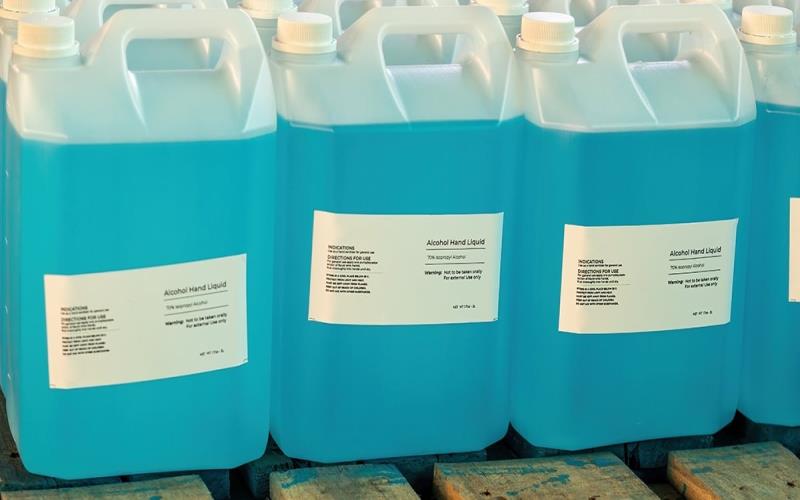As the world gradually emerges from the shadows of the COVID-19 pandemic, a new environmental challenge has surfaced: the disposal of alcohol based hand sanitizer. Once a symbol of safety, these bottles now represent a significant ecological concern. This article explores innovative and responsible disposal methods, addressing a critical issue that has largely remained under the radar.
The Environmental Impact of Hand Sanitizer Waste
The disposal of hand sanitizers has become an environmental issue that cannot be ignored. According to the U.S. Environmental Protection Agency, excess alcohol-based hand sanitizer is considered a hazardous waste due to its ignitable nature. This revelation underscores the urgency of finding sustainable disposal solutions.
The high alcohol content in these sanitizers, primarily ethanol or isopropanol, can disrupt delicate ecosystems if released untreated into the environment. A 2023 report on LinkedIn highlights the negative environmental impacts of improperly disposing of waste hand sanitizer, emphasizing the need for responsible management practices.
The Hidden Costs of Hand Sanitizer Disposal
Traditional disposal methods of hand sanitizer can be both costly and environmentally damaging. A study by K&L Gates in 2023 (source) discusses the complexities involved in the disposal process, which can lead to significant financial burdens for businesses.
A notable example is a company that faced hefty fines and reputational damage due to non-compliance with disposal regulations. This case, detailed in a report by Clean Management, serves as a cautionary tale for businesses navigating these challenges.
Innovative Recycling Techniques for Hand Sanitizer
New technologies are emerging for the recycling of hand sanitizers. These methods focus on separating the alcohol content from other components, allowing for the repurposing of ethanol for industrial use. A breakthrough in this field was reported by ScienceDirect, highlighting the economic and environmental benefits of these innovative techniques.
Navigating Regulatory Landscapes
Adhering to the regulations surrounding the disposal of alcohol-based hand sanitizers is crucial for businesses. The MCF Environmental Services website provides insights into the complexities of these regulations, emphasizing the importance of compliance to avoid legal repercussions.
The Business Case for Sustainable Disposal
Adopting sustainable disposal practices can lead to cost savings, improved brand image, and customer loyalty. Research from UNL MediaHub supports the business advantages of environmental responsibility, demonstrating how companies can benefit from adopting eco-friendly practices.
Happen Ventures’ Approach: Transforming Disposal into Community Support
Happen Ventures has pioneered an approach to hand sanitizer disposal that transcends traditional methods, turning a potential environmental liability into a community asset.
This innovative strategy not only addresses the environmental concerns associated with sanitizer waste but also taps into a deeper societal value: supporting communities in need.
The Core of Happen Ventures’ Methodology
- Identifying Surplus Inventory: The first step in Happen Ventures’ approach is to identify surplus or expired hand sanitizer stocks. This process involves a thorough assessment of the inventory, ensuring that the products, though expired, are still safe for use.
- Safe and Sustainable Disposal: Once the surplus is identified, Happen Ventures employs environmentally responsible methods to handle these products. This includes ensuring that transportation and storage meet safety standards, thus preventing any potential environmental hazards.
The Beneficial Reuse Model
- Community Donation Programs: The crux of Happen Ventures’ approach lies in its beneficial reuse model. Instead of treating expired hand sanitizers as mere waste, they are redirected to communities that can still utilize them. This step is crucial, as it provides a dual benefit: reducing waste and aiding communities.
- Meeting Community Needs: By donating these sanitizers to communities in need, Happen Ventures addresses a critical gap. In many areas, especially those still grappling with the aftermath of the pandemic or with limited healthcare resources, access to basic hygiene products like hand sanitizers remains a challenge.
The Impact Beyond Disposal
- Environmental Responsibility: This approach significantly reduces the environmental impact of sanitizer disposal. By diverting these products from landfills and preventing potential soil and water contamination, Happen Ventures contributes to a more sustainable future.
- Social Responsibility: The donation of these sanitizers to communities in need exemplifies corporate social responsibility. It’s a testament to Happen Ventures’ commitment to not just environmental sustainability but also to societal well-being.
- Building Partnerships: Happen Ventures collaborates with local organizations and NGOs to ensure that the sanitizers reach the right hands. These partnerships are vital in creating a network that supports both environmental and social goals.
A Call to Action for Sustainable Disposal
The need for responsible hand sanitizer disposal is more pressing than ever. By adopting innovative methods and partnering with companies like Happen Ventures, businesses can contribute to a more sustainable future while ensuring compliance and cost-effectiveness. This journey towards eco-friendly practices is not just a corporate responsibility but a global necessity.

